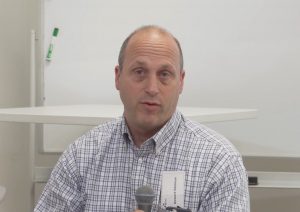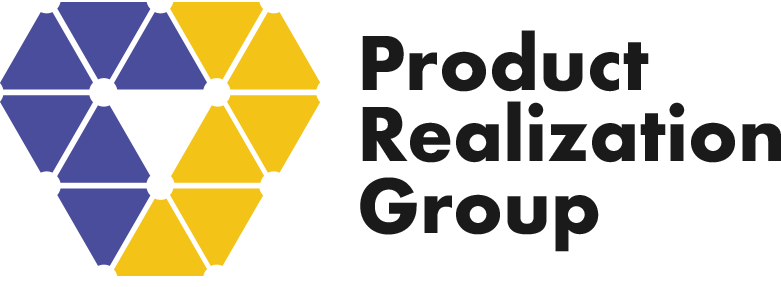
Jessica Ching, PRG Chief Marketing Officer recently spoke with Howard Edelman, PRG CRO and Sr Medical Device Consultant about the quality and regulatory systems needed for successful medical device development.
FDA requirements drive need for strong quality and regulatory systems

Jessica: Because of the FDA approval process, medical device companies have a big need for quality and regulatory systems.
Howard: We [PRG] have a lot of medical device development clients come to us looking for help from a regulatory and quality perspective. It’s a very important role in these companies. The earlier that they get that function filled and managed, the easier it’s going to be for them later as they are progressing to product verification and submission from a regulatory standpoint.
Companies often need a lot of help when they are making a decision to bring in a product life cycle (“PLM”) system. We have an exclusive relationship with Arena Solutions (“Arena”), which is one of the leaders in the market in this area.
Arena will refer a client to us that is interested in the Arena PLM product but may still be sorting out their needs. Similarly, Arena will contact PRG when a new client has an immediate need for an administrator, or a senior QA person, who is experienced with Arena and can help set up the overall structure of a quality management system and then help administer the product and train the other employees in its use.
PRG may initially consult with a client regarding its installation of Arena, but broaden our engagement to other areas of expertise such as program management or product development, depending on the client’s needs.
PRG often consults with medical device companies regarding new product introduction (“NPI”), especially when the company is entering verification and validation stages of the product life cycle.
Fundraising triggers the regulatory pathway
Jessica: When should you start to think about quality, regulatory, and management systems? What’s the trigger?
Howard: If a company has raised some capital, they’re already thinking about it. It’s important for an investor to understand what the regulatory pathway is.
It never is too early. Once a company starts validating a concept and moves from concept into formal development –this is when to get quality involved. From a regulatory standpoint, they should be involved earlier so that the company understands the regulatory path and what is required in the long term from the FDA for the company to get its clearance. They need to understand and get clarity on the claims they make, how they plan to label the product, the FDA approval process, the plan for product reimbursements. They need to understand their reimbursements, so that they will have clarity on their business model.
Earlier is better. A lot of companies reach out to us when they come out of the concept phase, and they’re ready to start formalizing development. PRG can come in on an incremental or long term basis and move a company down the road.
Reimbursement strategy is part of (early!) business planning
Jessica: When should a company start thinking about its reimbursement strategy?
Howard: Reimbursement strategy is part of business planning. You have to understand if you have the business and what the economics are. If you’re taking a route where the product is going through a professional, that means a clinician needs to understand coding , and what the coding could be for a procedure or for the instrument, and also what facility might face in terms of reimbursement if it’s billed as part of a procedure or separately.
In terms of reimbursement strategy, the companies really need to determine this early on to determine if they have a viable economic model. They also need to understand which insurers will pay, whether public or private, workers compensation or Medicare, or whether this is a cash business.
At the end of the day, when a company is seeking investment, their investor’s want to understand whether the business is viable, if there is a path to revenue and profitability, and how this will fit into potential liquidity for the investor. The reimbursement strategy must resonate with the potential acquirer. The reimbursement strategy align with that so that when you’re doing you’re clinical studies, you’re getting the right outcomes, for clinical purposes and for economic purposes. PRG has resources that can help a medical device company work through reimbursement planning, coding and so forth,
PRG leverages partnerships with PLM systems
Jessica: We had talked earlier about Product Lifecycle Management (PLM) Systems. PRG has a partner relationship with Arena Solutions. Tell us how that works.
Howard: Every company must decide how to manage their product and all the documentation related to their product. Similarly, the company must decide how to manage quality and what quality management system to use. The company must decide which life cycle management system to use. One that’s quite popular these days is Arena Solutions. PRG has an exclusive relationship with Arena as a supplier of client services.
Sometimes Arena will contact PRG to assist with services when the client is trying to make a decision to purchase the Arena Solutions PLM. In other instances, Arena will contact PRG to assist the client to assist in administering and implementing the system. This might include configuring and setting it up and then training employees on its use. It might include implementing the client’s SOPs into the system and fleshing out their quality management system.
What is exciting about our relationship with Arena is that I think they already have at least 200 medical device companies now on board. And they are very focused on growing that. They value the expertise in medical devices that we bring to their customer base. If their clients were not able to find resources experienced with medical devices to implement and manage a PLM system that meets the business needs of their highly regulated industry, then it could really be a roadblock– perhaps hindering sales of the PLM systems, but surely delaying set-up and implementation. So when PRG is here and available and ready, with resources to plug in very rapidly, both companies are very excited about what we can do in the marketplace.

Jessica Ching is Chief Marketing Officer for the Product Realization Group. Jessica has over 20 years experience bringing new medical devices to market, working for Dexcom, Abbott Labs, Bosch, Telehealth, Body Media/Jawbone, IDx, XPRIZE, Samsung, and Toshiba.

Howard Edelman is a veteran of the medical device industry, with over 30 years experience working in product development, business strategy, go-to-market, regulatory, reimbursement and operations of major medical brands, including Johnson and Johnson, Zeiss, Coopervision and Biorad. He has also been involved in several medical startups, primarily specializing in orthopedics. He currently focuses on early stage medical companies. Howard is also a member of Life Science Angels, considered one of the best angel groups for health care. He is the Senior Chair of the Digital Health Screening Committee.
Learn more about Arena Solutions.


